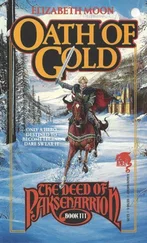Elizabeth Peters
Trojan Gold A Vicky Bliss Mystery

TO DOMINICK
with respectful admiration, admiring respect,
and much affection
One
FIRE STAINED THE NIGHT. THE SKY ABOVE the dying city was an obscene, unnatural crimson, as if the lifeblood of its people were pouring upward from a million wounds. As he fought through the inferno he missed death by inches not once but a dozen times. The conquerors were already in the city. Another enemy army was closing in from the west; but the horde of refugees, of whom he was one, fought their way westward with a desperate, single-minded intent. Throughout history, always the barbarian hordes had come from the east .
Unlike the others, he was not concerned with his own survival, except insofar as it was necessary in order to ensure the survival of something that meant more to him than his own life. This city would fall to the barbarians as other imperial cities had fallen—Rome, Constantinople—and the battle and its aftermath would add more wreckage to the monstrous mound of shattered beauty—dead children and mutilated women and torn flesh, burning books, headless statues, slashed paintings, shattered crystal…. One thing at least he would save. How he would do it he did not know, but he never doubted he would succeed. He knew the city, knew every street and building, though many of the landmarks had vanished in pillars of whirling flame and heaps of smoldering rubble. He would get there first. And in the lull between the flight of the vanquished and the triumph of the conquerors, he would find his chance .
He was more than a little mad. Perhaps only a madman could have done it .
That’s how I would begin if I were writing a thriller instead of a simple narrative of fact. Exactly how he accomplished it will never be known; but it may have been something like that. I only wish my part of the story had started with such panache—the death throes of a mighty metropolis, the fire and the blood and the terror….
What am I saying? Of course I don’t really wish that. But I could wish for a slightly more dramatic start to this tale than a stupid petty argument with my boss’s secretary over a stupid petty bit of office routine.
I love my work, and I don’t really hate Mondays. I hated this Monday morning, though, because I had a hang-over. I am not a heavy drinker—I know, that’s what everybody says, but in my case it’s true. I make it a rule not to overindulge, in any fashion, on a work night. There were reasons—not good reasons, but reasons—why I had broken the rule that Sunday. They have no bearing on this story and they are nobody’s business but my own. Suffice it to say that I was late to work and not happy to be there. If I had been in my normal sunny morning mood, I probably would not have overreacted when I saw what Gerda had done.
Gerda is, as 1 have mentioned, my boss’s secretary; and my boss is Herr Doctor Anton Z. Schmidt, director of the National Museum in Munich. The National is small but what’s there is “cherce,” to quote one of my favorite film characters. The building and the basic collections had been contributed to the city back in the eighteen hundreds by a Bavarian nobleman who was as eccentric as he was filthy-rich, which is one of the reasons why our present collections are a bit unusual. For example, we have the most extensive collection of antique toys in Europe. We have a gem room, a medieval-art section, and a costume room. The noble Graf von und zu Gefenstein also collected ladies’ underwear, but we don’t display that collection, fascinating as it is to students of costume. At least the people who request access to it say they are students of costume.
The point of all this, in case you are wondering, is that our staff isn’t large. Although Gerda has the title of Secretary to the Director, she types all our letters and takes care of most of the office work for the staff. No problem for Gerda; she is inhumanly efficient. She is also very nosy.
Since I was late, I wasn’t surprised to see that Gerda had taken advantage of my tardiness to mess around with my things. I wasn’t surprised, but I was irate. If I had told her once I had told her a hundred times to leave my desk alone. Those heaps of debris are sacred to me. I know where everything is. If people start tidying up I can’t find anything. Gerda had stacked everything. She is a great stacker—nice neat piles, sorted by size instead of content, every corner squared.
She had also replaced my desk blotter. The new one lay there pristine and dead; gone was the old one, with its vital store of information—telephone numbers, shopping lists, addresses of shops, and notes on books I wanted to read…. And smack in the center of the nice new blotter was my mail. She had opened every letter and every parcel. The envelopes were stapled to the letters, which meant that in order to avoid tearing the latter, I would have to pry off the staples, breaking half my nails in the process.
I kicked the nearest filing cabinet. Hopping and swearing. I went behind the screen that concealed the really important objects in my office—the sink and hot plate and coffee maker—and plugged in the last-named article. I fully intended to kill Gerda, but I figured I had better have a cup of coffee first. Otherwise I might stumble on the stairs and break a leg before I got my hands around her throat.
While I drank my coffee, I glanced through the mail but found nothing that improved my disposition, especially after I broke a nail prying off a staple. It was the usual assortment: notices of meetings, circulars from academic presses offering books nobody could afford on subjects nobody knew anything about, and letters from students asking permission to use the collections or to reproduce photographs.
The stack of mail was pyramid-style, with the largest items on the bottom. I worked my way grimly down to the base—a coarse brown envelope approximately 8 by 10 inches in size. One of those well-known plain brown wrappers? It was plain enough; no sign of writing, not even my name. The heavy tape sealing the flap had been slashed, leaving edges so sharp I cut my finger when I reached into the envelope. Gerda’s famous paper knife, honed to the keenness of a headsman’s sword. One of these days someone was going to stab her with that knife. It might be me.
She hadn’t stapled the enclosure to the envelope, probably because her diabolical tool could not penetrate the heavy cardboard on which the photograph was mounted. It was a black-and-white photo, probably enlarged from a snapshot; the faintly fuzzy focus suggested amateur photography. As I stared at it, a flash of memory rose and fell in the murky depths of my alcohol-fuzzed mind, but I couldn’t get a grip on it. Yet I knew I had seen a photograph like that before.
The subject was a woman. The skin of her face had sagged and her thin mouth was set in a straight, expressionless line. She could have been any aging Hausfrau , except for her costume. A fringed diadem several inches wide encircled her brow. From it dangled ropes and chains of some metallic substance. Her earlobes were pulled down by more chains and dangles; the bodice of her plain dark dress was almost hidden by necklaces, row on row of them.
I turned the photograph over. The back was plain gray cardboard, with no inscription or photographer’s imprint. Why the hell had someone sent me a picture of his mother dressed up for an amateur theatrical performance? His mother the soprano? She didn’t resemble the conventional contralto stereotype; her chin sagged with the weariness of age, and her features were pointed and meager, like those of a rain-soaked bird. But the gaudy fake jewelry suggested one of the more exotic operas, such as Lakmé or Aïda .
Читать дальше









